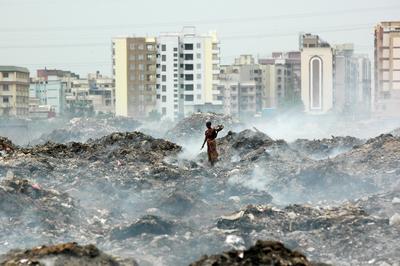But he made it clear that international trade and sustainable development are inseparable, and something no nation can afford to lose sight of — especially at a time when both reinforce each other. Ramesh recently said: ‘We need both and need to establish a trade-off between the two’.
Jayanthi Natarajan, Ramesh’s successor, will echo the same view but perhaps like to handle the issue in a different manner. The important point is that international trade is still a viable medium for fostering sustainable development. And the economic argument that ‘trade promotes growth and growth reduces poverty’ remains fresh in the minds of politicians and policymakers.
Growth of international trade is a significant tool for attaining sustainable development. Acceleration of trade requires the creation of new markets, exposure of domestic firms to international practices, introduction of new investment and adoption of new technology. These initiatives create opportunities for sustainable growth and development for large numbers. But the application of such technology and investment in becoming eco-compliant and environment-friendly remains a matter of concern. In major fora it is argued that the adoption of new and more efficient technologies help reduce pollution and the production of waste. This also increases the efficiency of resources and consequently expands trade.
Today the issue of trade and sustainable development faces a number of challenges. Unresolved trade and sustainable development issues, coupled with the challenge of implementing an equitable rules-based global trading system, are proving difficult to resolve through negotiation. Such an exercise demands compliance with national, bilateral and regional policies and agreements which ultimately present enormous challenges for all countries.
Challenges of this nature need greater urgency for developing and developed countries to generate capacity and strategy for pursuing sustainable development in trade and investment policy and practice. Objective and accurate research, analysis and capacity building for policymakers of developing and developed countries need to be acheived. This would expose them to policies that address social issues such as poverty alleviation, access to health and education and income opportunities — all while ensuring environmental management that works in balance with economic and trade development.
If environmental challenges are left unmitigated, it will inevitably affect the poorest, rendering trade unsustainable. The moot point is how to ensure the benefits of trade percolate down to the bottom. There is a worldwide increase in globalised economic activity, huge environmental degradation and widening income inequality. So achieving sustainable development will critically depend on proactive resolution of the issues at domestic and international levels.
The task before India’s new environment minister is daunting. India’s population is likely to reach 1.6 billion by mid-century. This would create massive pressures on land use for mainly-rural livelihoods, urban planning, public health, energy and food production. The convergence of these human pressures with those of climate change and sustainability will propel India to think of a green-growth path, like what Jairam Ramesh had in mind. It would require careful consideration of the trade-offs between development and conservation on a case-by-case basis. The social and political pressure from communities having to contend with the vagaries of environmental degradation is slowly forcing the government to tilt its policies towards adopting greener development. This would mean putting a cap on speedy industrialisation. Besides, international pressure is also building on India to reduce emission levels, indirectly hinting at slowing down its process of industrialisation.
Confronted with all this, will Natarajan be as bold and steadfast as her predecessor in standing up to the pressure of domestic industry? And how will she address India’s position globally? What is clear is that India will need to tread carefully on a path representing a balance between international trade and sustainable development.
Dr Anil Kumar Kanungo is a member of the Indian Institute of Foreign Trade, New Delhi.

